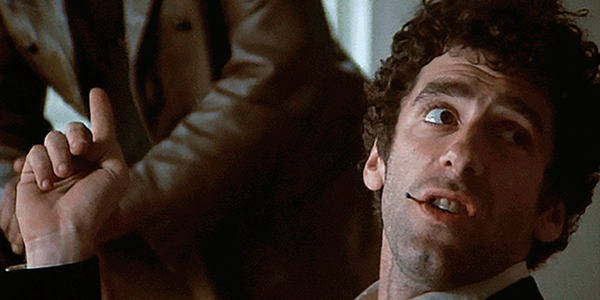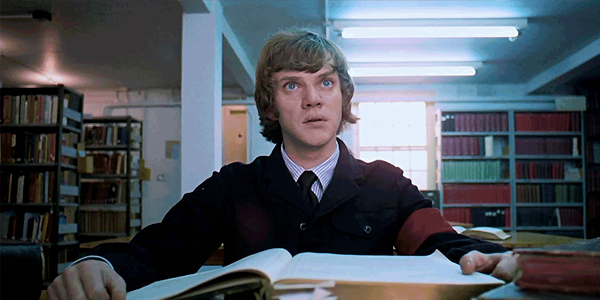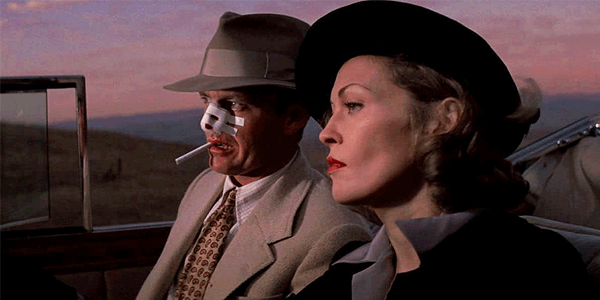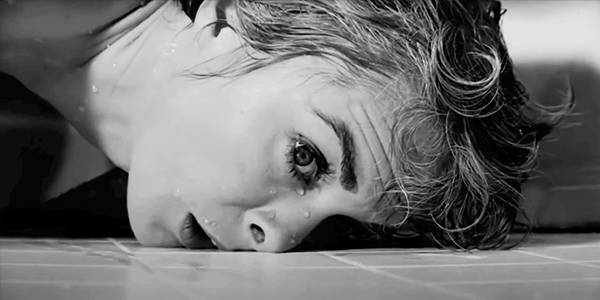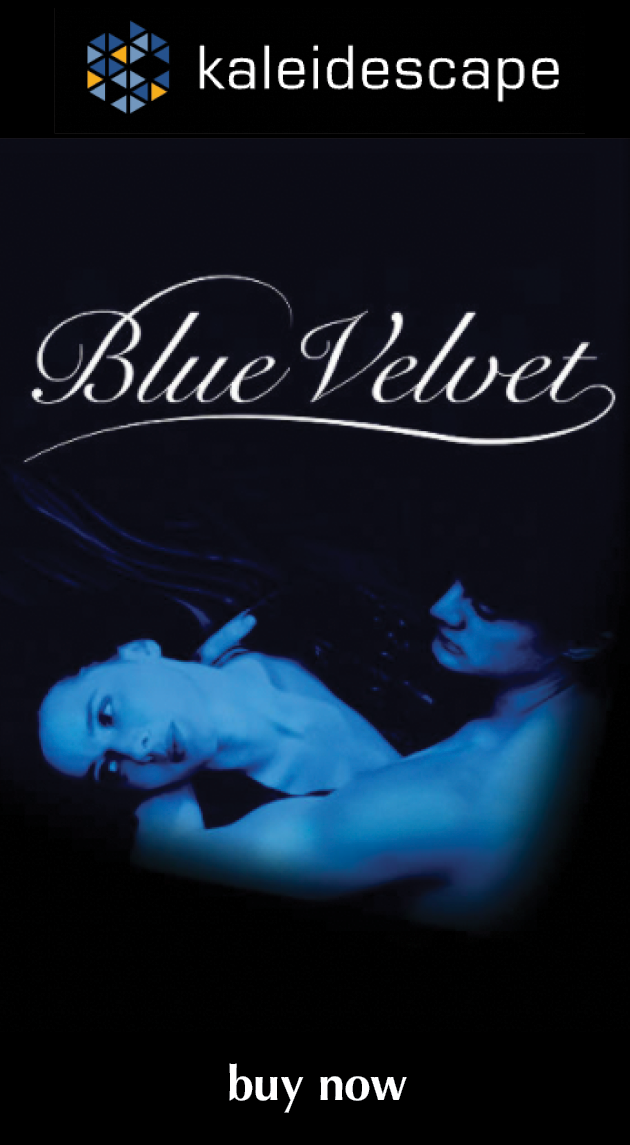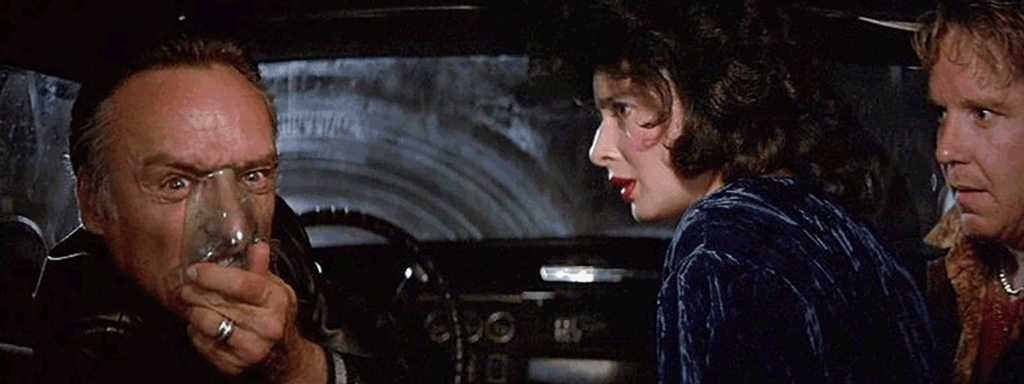
review | Blue Velvet
David Lynch’s breakthrough effort is still a compelling viewing experience but, in retrospect, proved to be a harbinger of what’s worst about contemporary film
by Michael Gaughn
January 23, 2021
I used to be a huge David Lynch fan. His films were a welcome relief from the increasingly juvenile and shrill mainstream fare of the ‘80s and ‘90s without the pretentiousness and unearned seriousness of typical Oscar fodder. And they were, for the most part, fun to watch, even exhilarating.
But I also had my doubts. Something about his work never quite aligned the way it should. Each movie was ultimately less than the sum of its parts, seeming to deliver as you watched it but quickly dissipating after the lights went up, scattering as quickly as the dreams he has always tried to ape.
And there were always efforts along the way that were just plain indigestible—the mercilessly vicious and cruel Wild at Heart, the pointlessly incoherent Lost Highway, and the just plain pointless Inland Empire.
On the other hand, I’ve always liked the much derided Fire Walk with Me, for some reason, and have a soft spot for The Straight Story. Mulholland Dr. might be the one film of his people will still look at 50 years from now, thanks mainly to Naomi Watts’ performance—although they might jump ship once they realize it means having to put up with Justin Theroux for two hours.
The thing that sealed all of my doubts about Lynch and morphed those doubts into a kind of disgust was the misguided and inept Twin Peaks reboot. As with most reboots, it gave hardcore fans, who are by definition uncritical, exactly what they wanted. But for those who appreciate unique experiences and the passé notion of quality, it was all half-baked, nasty, and relentlessly ugly.
The point of this potted history was to bring us to the film that really set the whole “Lynch” thing in motion, Blue Velvet. Until then, he only had a glorified student film that became a glorified cult film, a dull portrait of a historical freak, and a completely disjointed and uninteresting sci-fi epic under his belt. Velvet not only finally established his career but also launched all of those mannered, fetishistic tropes that defined the Lynch brand—the arch little faux Dali jokes, the ambiguous images and actions and gestures and phrases and stylistic splashes that were meant to be dreamlike but ultimately meant even less than dreams, the politically motivated retrograde embrace of the 1950s, the dipping into his record collection to parasitically create unearned emotional effects, and the raw sadism we were supposed to accept because it was the unfiltered upwelling of the unconscious or something. Beyond, and because of, all that, it ultimately helped launch the most corrosive trends in the history of the movies, resulting in our current atrocity-based cinema. But I’ll get to that.
It’s probably been a decade since I last watched Blue Velvet so I was able to approach it with somewhat fresh eyes, and it still works. It’s still a compelling piece of filmmaking that leaves you feeling like you’ve experienced something—although my sense of what that something is has changed considerably over the years.
One of the reasons it still works is that it has a rudimentary plot with something resembling emotional hooks. Of course, it’s a pretty lousy excuse for a story and daring somebody to retell it accurately is an all but guaranteed way to win a bet, but it at least acts as a kind of dog fence for reining in all of Lynch’s various indulgences, lending something resembling form, unlike the inchoate and dull randomness of most of his other work.
But what really struck me on this viewing is just how much Dennis Hopper makes this film. He is Blue Velvet. Kyle McLachlan is a far from riveting screen presence and Laura Dern’s gangly awkwardness can make their scenes together uncomfortable to sit through. But once Hopper appears, everything clicks neatly into place and the film leaps from being a stylistic exercise to something worth watching.
Hopper always struck me as a one-note actor—when he wasn’t raging, he wasn’t anything. But he perfectly channels all of that here, convincingly making pure rage equal pure evil and making you wonder if all the treacly stuff at the beginning and end isn’t just insincere pretext. Most people would assume Lynch meant McLachlan to be his onscreen surrogate, especially after all the Agent Cooper crap in Twin Peaks. But I seriously have to wonder, especially in light of the rest of his career, if Lynch didn’t really feel most at-one with Hopper’s Frank Booth. McLachlan is kind of a nugatory presence but Hopper is the well-head of all energy.
Frederick Elmes’ hugely influential cinematography is still effective—but the film’s low budget was a little more obvious this time around and runs the risk of being even more blatant when Velvet eventually makes the leap from HD to UHD. There’s the dirt on the lens during the famous opening pan down from the improbably blue sky and an obvious screen-door effect from a lens filter during the early shot where Jeffrey crosses the field where he’ll discover the severed ear. Also, the heavy reliance on wide-angle lenses causes curvature on the edges of the frame that becomes distracting and then annoying, and ultimately dates the film.
Alan Splet’s equally influential sound design is still intriguing, but since it’s not always clear what it’s in the service of, it’s almost like listening to an abstract exercise in musique concrète. Blue Velvet deserves credit, though, for being one the first films to make a convincing case for using surround sound for something other than the usual bludgeoning mayhem.
Angelo Badalamenti’s score is, let’s say, interesting, mainly a Schoenberg pastiche (you get the sense Lynch was using Verklärte Nacht for a temp track) interspersed with some not very convincing cop-drama cues. It has the saving grace of having been done with an actual orchestra, unlike the more watery synth-driven stuff Badalementi tended to lean on in Lynch’s later films.
There is no denying that Blue Velvet contains some brilliant filmmaking, that parts of it have a purity of execution that’s invigorating and rare. And if that was all that was relevant to judging a film, Lynch could be considered one of the great directors. But there’s something at the heart of this movie that’s just depraved, something that Lynch’s frequent flashing of his TM Get Out of Jail Free card just can’t absolve. Blue Velvet remains disturbing because it’s disturbed—there’s just no other way to slice it.
And that presents the biggest rub. Lynch helped make amoral depravity fashionable. It’s not like he didn’t have a lot of help, but he, with this film, pretty much single-handedly created its art-house wing. And he opened the floodgates for every other callow entitled type who could hide their fundamental immaturity behind dazzling exercises in style to trash anything that could be considered serious filmmaking. Without Lynch, there is no Fincher—or PTA or Spike Jonze or Aronofsky or any of the other aesthetically or morally half-born types we now bank our notions of “serious” filmmaking on.
Of course, this raises questions of whether these directors—or the machines that have their names attached to them—actually influence the culture or just reflect it. This isn’t the place to go into that, and what I feel is the correct answer is far from fashionable. All I can say is that the perception of Blue Velvet, and of Lynch, would be far different if the film had remained an exception, if hadn’t been a harbinger, if it hadn’t become the rule.
Michael Gaughn—The Absolute Sound, The Perfect Vision, Wideband, Stereo Review, Sound & Vision, The Rayva Roundtable, marketing, product design, some theater designs, a couple TV shows, some commercials, and now this.
PICTURE | Frederick Elmes’ hugely influential cinematography is still effective—but the film’s low budget runs the risk of being even more blatant when Velvet eventually makes the leap from HD to UHD.
SOUND | Alan Splet’s equally influential sound design is still intriguing, but since it’s not always clear what it’s in the service of, it’s almost like listening to an abstract exercise in musique concrète
© 2025 Cineluxe LLC


